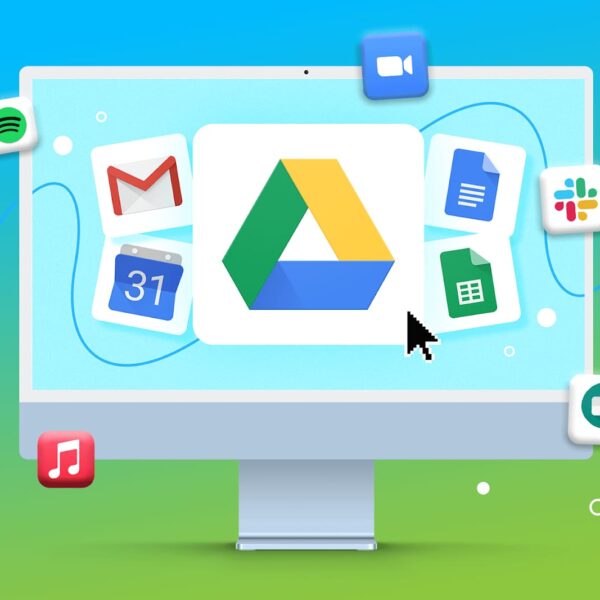Running a remote casino operation takes more than a good product. Behind every successful casino — especially in fast-moving areas like non-Gamstop casinos — is a remote team working across time zones, juggling live support, development cycles, risk monitoring, content creation, and more. When your team isn’t sitting in the same building, communication tools aren’t just helpful — they’re non-negotiable.
In 2025, casino brands need tools that support different departments with different demands. Support teams need speed. Developers need technical accuracy. Compliance officers need traceable conversations. Affiliates and marketers need a way to sync without micromanaging. This guide breaks down the best communication tools for remote casino teams and explains how each fits into the wider structure of a digital-first casino business.
1. Slack: Flexible, Channel-Based Team Chat
Slack remains a favourite among remote teams due to its balance of simplicity and power. For casino operators managing teams in different cities or countries, Slack helps maintain structured, fast-paced communication without overwhelming users.
Why it works:
- Threads keep conversations clean and focused
- Channels can be public or private, depending on access
- Integrates with tools like Jira, Notion, and Google Drive
- You can automate reminders or alerts from systems
Casino-specific use:
- #support-handover for shift transitions
- #dev-bugs for reporting game issues in real time
- #affiliates-content for sharing and approving creative materials
- #compliance-alerts for sensitive updates or audits
Slack also supports custom workflows, which let teams build mini-automations without needing extra tools. For example, support staff can log issues via forms that route into a tracking sheet or notify the correct manager.
2. Microsoft Teams: Structured Comms for Compliance-Heavy Teams
Microsoft Teams is ideal for casino operators who work in regulated markets and need tighter integration with Microsoft 365 tools. For operations that lean heavily on structured calendars, legal reporting, and internal documentation, Teams provides the depth Slack sometimes lacks.
Why it works:
- Seamless file management through SharePoint
- Direct sync with Excel, PowerPoint, and Word
- Scheduling tools are embedded for consistent meeting routines
- Built-in recording for audits or policy training
Casino-specific use:
- Weekly KYC/AML team calls are recorded and stored in shared folders
- Shared Excel documents track licensing submissions and deadlines
- Legal teams run version-controlled docs for terms & conditions
Microsoft Teams also supports compliance tools like sensitivity labels and retention policies, which are essential for long-term risk management in regulated casino environments.

3. Discord: Real-Time Voice for Live Teams
Discord isn’t just for gamers anymore. It’s increasingly used by agile operations teams where speed and responsiveness matter more than polished interfaces. It gives remote casinos a casual but direct voice channel setup that’s perfect for continuous handover across time zones.
Why it works:
- Voice channels run constantly, so no need to “start a call.”
- Organise by team (support, moderators, night shift)
- Lightweight, fast setup without formal onboarding
- Chat channels support emojis, images, and bots
Casino-specific use:
- Live support teams in Malta and the Philippines coordinate across shifts
- Managers jump into live channels to resolve disputes quickly
- QA testers talk directly to developers during the slot release phases
For operations needing urgent feedback loops without video pressure, Discord offers a fast alternative.
4. Notion: Central Hub for Asynchronous Collaboration
Notion functions like an internal website for your team. It houses all the long-form, structured information that shouldn’t be lost in chat logs. In remote casino teams where different departments work independently, Notion helps connect projects through clear documentation.
Why it works:
- Easy to create wikis, databases, and dashboards
- Pages can be locked or made public within the team
- Collaborators can comment, update, and tag tasks
- Works well with embed-friendly tools like Figma or Miro
Casino-specific use:
- Product teams manage a living roadmap linked to dev sprints
- Support teams maintain FAQs and protocol pages for new tools
- RG analysts update review checklists and flag thresholds
- Affiliate managers store campaign data, asset kits, and status trackers
Notion becomes especially powerful when integrated with Slack, where updates from pages can be pushed directly into relevant channels.
5. Google Chat + Meet: Simple Stack for Lean Casino Startups
For smaller teams or recently launched casinos operating on tighter budgets, Google Chat and Google Meet offer a fast and functional solution. They don’t have all the features of more complex systems, but they get the job done with less setup and cost.
Why it works:
- Works directly inside Gmail and Google Calendar
- Meet supports call links, guest access, and recordings
- Chat spaces provide simple threading for short updates
Casino-specific use:
- 5–10 person founding teams run weekly updates entirely through Google
- External freelancers invited to join brainstorms with no login issues
- Quick syncs on bug fixes or graphic changes happen within Gmail threads
For operators prioritising speed and practicality over complex toolsets, Google’s suite hits the mark.
6. Front: Smart Inbox for Team Email Collaboration
Casino operators deal with a high volume of inbound emails: payment gateways, license bodies, affiliates, and B2B deals. Front takes traditional shared inboxes and makes them collaborative, so the whole team stays informed without endless forwarding or CC chains.
Why it works:
- Assign incoming messages to a team member
- Internal comments help align before responding
- Templates improve response time and consistency
Casino-specific use:
- Affiliate managers handle hundreds of monthly partnership requests
- Customer support supervisors triage complaints or escalations
- Finance teams monitor and respond to bank/payment issues as a group
Front also offers analytics on email load, average reply time, and client history — useful data when juggling external partners.
7. Loom: Video for Fast Explanations
Written docs don’t always explain a process well, and live meetings aren’t always feasible. Loom fills the gap. It’s perfect for remote casino teams working asynchronously, across technical and non-technical departments.
Why it works:
- Capture screen, audio, and webcam in one click
- Share link instantly in Slack, Notion, or via email
- Viewers can react or comment directly on the video
Casino-specific use:
- The product owner records a demo of a new tournament feature
- Designers show UI animations to developers
- Risk teams explain account review workflows visually
Loom cuts meeting time by letting people explain once and reuse. It’s especially valuable during onboarding or cross-team handoffs.
Building a Communication Stack That Actually Works
The key to choosing tools isn’t finding the one that does everything. It’s about building a stack where each tool has a clear job. Here’s a breakdown that works for most remote casino teams:
Daily Communication: Slack, MS Teams, or Google Chat
Live/Voice Support: Discord
Documentation and Process: Notion or Google Docs
Email Management: Front
Video Updates or Training: Loom
Scheduled Calls: Google Meet or Microsoft Teams
Stick to the tools your team actually uses. Don’t overbuild. Most breakdowns happen not because tools are missing, but because no one agreed on how to use them.
Final Thoughts
Running a remote team in the casino industry — especially across non-Gamstop operations — requires strong coordination and clear communication. But that doesn’t mean more meetings or more apps. The best tools do their job without getting in the way.
Choose the ones that match your team’s size, habits, and time zone spread. Give every tool a purpose. Set some ground rules. And then let your team do what they do best — without chasing messages across six different tabs.
